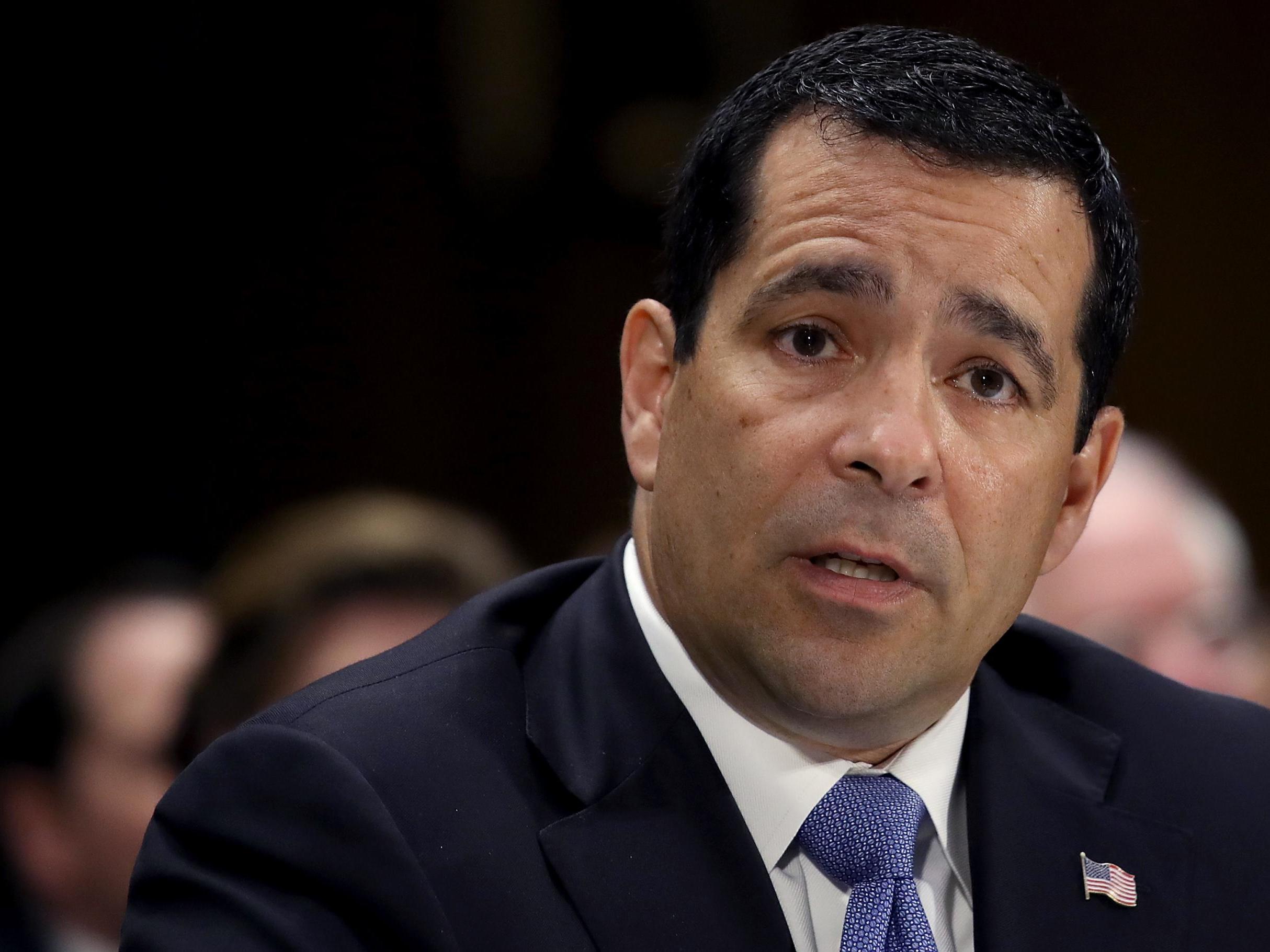US election: Counterintelligence chief warns voters to beware foreign interference in 2020 vote
‘Consume information with a critical eye,’ William Evanina tells public

Your support helps us to tell the story
From reproductive rights to climate change to Big Tech, The Independent is on the ground when the story is developing. Whether it's investigating the financials of Elon Musk's pro-Trump PAC or producing our latest documentary, 'The A Word', which shines a light on the American women fighting for reproductive rights, we know how important it is to parse out the facts from the messaging.
At such a critical moment in US history, we need reporters on the ground. Your donation allows us to keep sending journalists to speak to both sides of the story.
The Independent is trusted by Americans across the entire political spectrum. And unlike many other quality news outlets, we choose not to lock Americans out of our reporting and analysis with paywalls. We believe quality journalism should be available to everyone, paid for by those who can afford it.
Your support makes all the difference.The head of the American counterintelligence agency has warned US voters to watch out for foreign interference ahead of the upcoming presidential election.
Voters should screen information and check online sources, the director of the National Counterintelligence and Security (NCSC) said.
William Evanina also told the public to “consume information with a critical eye” in his rare warning on Friday.
He said that with just over 100 days until election day, it was “imperative” his agency shared with voters some of the information about possible interference that US spies have already given to campaigns and legislators.
“The American public has a role to play in securing the election, particularly in maintaining vigilance against foreign influence,” said the NCSC chief, who directs the counterintelligence branch of the Office of the Director of National Intelligence.
“At the most basic level, we encourage Americans to consume information with a critical eye, check out sources before reposting or spreading messages, practice good cyber hygiene and media literacy, and report suspicious election-related activity to authorities,” Mr Evanina added in a statement.
A US intelligence community assessment in January 2017 found Russia meddled in the election the year before and its goals included aiding Donald Trump, who has frequently cast doubt on whether Moscow actually did interfere.
Given the complexity of US vote counting and auditing systems, Mr Evanina said it would be “extraordinarily difficult for foreign adversaries to broadly disrupt or change vote tallies without detection”.
However, he said US spy agencies now saw foreign adversaries trying to compromise US political campaigns and candidates, as well as elections infrastructure.
He said foreign nations were trying to influence US voters via social and traditional media, using issues including the coronavirus pandemic and domestic protests as disinformation fodder.
Mr Evanina said his agency was mainly concerned with interference by China, Russia and Iran, though other unnamed countries and non-state actors “could also do harm to our electoral process”.
Leading Democratic legislators complained that Mr Evanina’s warning did not go far enough.
They said his statement “gives a false sense of equivalence to the actions of foreign adversaries by listing three countries of unequal intent, motivation and capability together”.
“The statement, moreover, fails to fully delineate the goal, nature, scope and capacity to influence our election,” House speaker Nancy Pelosi, Senate minority leader Chuck Schumer, and top intelligence committee Democrats Mark Warner and Adam Schiff said in a statement.
“To say without more, for example, that Russia seeks to ‘denigrate what it sees as an anti-Russia "establishment" in America’ is so generic as to be almost meaningless,” the Democrats added.
In the UK, a recently released report has warned that Russia represents an “established threat” in the UK.
The Intelligence and Security Committee said the UK government was slow to recognise the potential threat posed by Russia to British democratic processes and did not properly consider whether Moscow could interfere in the Brexit referendum until after the event.
The UK home secretary is expected to propose new laws against foreign interference amid the storm over Russia’s influence in the country.
Additional reporting by agencies
Join our commenting forum
Join thought-provoking conversations, follow other Independent readers and see their replies
Comments